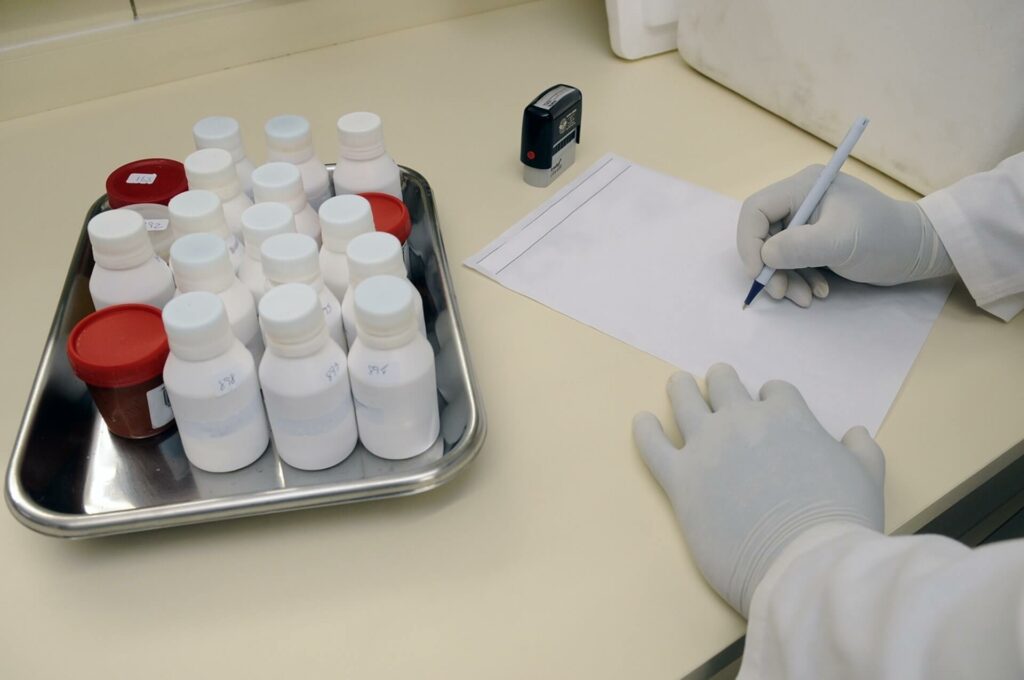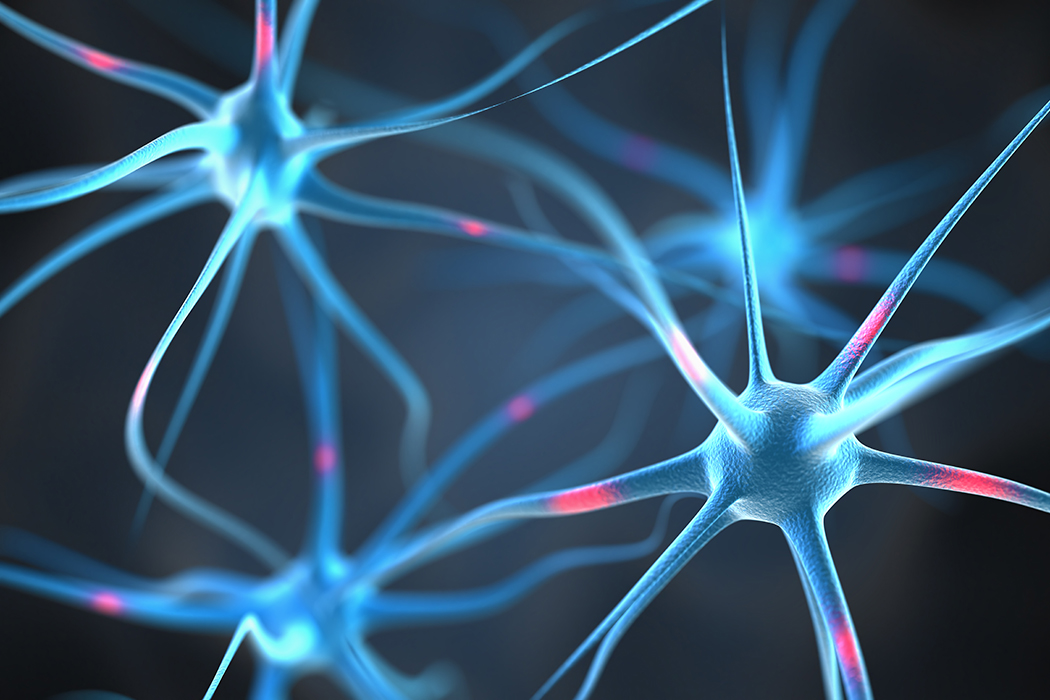Clinical trials play a key role in advancing the understanding and treatment of testicular cancer. As one of the most treatable forms of cancer, testicular cancer has a high survival rate when detected early. They offer new explorations into medicines, therapies, and treatment combinations that may improve a patient’s outcome at all stages of the disease.
Conducting these trials helps researchers and oncologists understand how new treatments affect both the cancer and the patient. For testicular cancer, trials often focus on reducing side effects, preserving fertility, and maintaining quality of life, which are generally the most important factors to those who are diagnosed.
Simbec-Orion is a full CRO management service, assisting with all or individual stages of the clinical trial cycle, including phase 1, phase 2 and phase 3. In this article, we explore the symptoms and importance of clinical trials for finding new treatments for testicular cancer.
What is Testicular Cancer?
Testicular cancer is a type of cancer that develops in the testicle with around 2,400 new cases each year. This type of cancer is the 17th most common cancer in UK males and it is common in the younger demographic – with the incidence rates being the highest in males ages 30-34. Unlike many other cancers, it typically has a high rate of treatment success, particularly when detected early.
There are two primary types of testicular cancer: seminomas and nonseminomas. Seminomas grow more slowly and are typically more responsive to radiation therapy so this is often the preferred treatment combined with surgery. The procedure is often the first step (orchiectomy), which involves the removal of the affected testicle. This may be sufficient, however, treatments such as radiation or chemotherapy may be recommended to prevent it from coming back.
Non-seminomas, on the other hand, often grow and spread more quickly but can still be treated effectively, especially when identified in early stages.
Symptoms of Testicular Cancer
The NHS states some of the symptoms of testicular cancer include:
- Painless Lump or Swelling: Often the first noticeable sign, a lump or swelling, may develop in one testicle. It is usually painless but can occasionally be accompanied by mild discomfort.
- Heaviness in the Scrotum: Some men may feel a sensation of heaviness, firmness, or dragging in this area.
- Dull Ache in the Lower Abdomen or Groin: A dull ache or pain in the lower abdomen, back, or groin area may occur as the cancer progresses.
- Sudden Fluid Accumulation: Fluid may suddenly accumulate in the scrotum, causing it to get noticeably larger.
- Breast Tenderness or Enlargement: Hormonal changes triggered by certain types of testicular cancer can cause tenderness or enlargement in the breast tissue, a condition known as gynaecomastia.
- Back Pain: In more advanced cases, cancer that has spread may cause persistent lower back pain.
- Fatigue: Although less common, some individuals experience fatigue, weakness, or a general feeling of illness if the cancer has metastasized.
- Unexplained Weight Loss: Losing weight without any habit changes or trying.
- Other Changes: You could also experience a cough that won’t go away (for more than three weeks) or difficulty breathing or swallowing.
It is important to check the area regularly to monitor any changes for early detection. If you experience one or more of these symptoms, it doesn’t always indicate cancer – but you should see a GP over any concerns.
Who Does Testicular Cancer Affect?
There are risk factors that are associated with testicular cancer, however, it is not determined the true cause of it. Risk factors include:
- One significant risk factor is a family history of the disease. If a close family member, such as a father or brother, has had testicular cancer, the likelihood of developing it increases.
- Genetic mutations may also be linked but studies are still ongoing to determine the conclusions.
- Men with undescended testicles (cryptorchidism) are at a higher risk. Usually, testicles descend from the abdomen into the scrotum before or shortly after birth. When they fail to do so, even if corrected surgically, the risk of testicular cancer remains elevated.
- Studies indicate that testicular cancer occurs more frequently in Caucasian men than in African American or Asian men. There are also 190 cases per year in England linked with deprivation.
- Environmental and lifestyle factors could have an impact, however, it has still not been determined. There is the belief that endocrine disruptors in our lives could affect hormonal regulation and contribute to increased cancer risk – however, this isn’t clearly defined.
Testicular Cancer Awareness Month 2025
Continued research aims to better understand the molecular and genetic factors that could be a cause of the cancer and in turn, would improve early detection methods and treatments. The dedicated testicular cancer awareness month has emphasised the importance of regular self-examinations to help men detect potential changes and take a proactive approach to check for symptoms.
History of Testicular Cancer Awareness Month
The movement to designate a specific month for testicular cancer awareness began in the early 2000s. Cancer organisations and charities aim to break down the stigma and silence around testicular cancer by educating the public about self-examinations and risk factors. Groups like the Testicular Cancer Society and Movember Foundation helped push for official recognition of April as Testicular Cancer Awareness Month, using educational campaigns to spread information through community outreach, social media, and partnerships with healthcare providers.
Year-on-year, the awareness grows and attracts high-profile survivor stories to help spread education about the disease further. Celebrities and athletes who had overcome testicular cancer shared their journeys publicly, contributing to the month’s growing recognition. Their stories helped to destigmatise the topic and encourage young men to prioritise getting checked.
Objectives of Testicular Cancer Awareness Month
Each April, the objectives are centred around education, early detection, and support for those affected by testicular cancer. As a relatively rare cancer that primarily affects young men, testicular cancer has a high survival rate when detected early.
- Informational resources are spread through community outreach, social media campaigns, and partnerships with healthcare providers, aiming to normalise discussions about testicular health, make information accessible and promote early detection.
- Supporting ongoing research into testicular cancer treatment is another focus. Awareness month activities include fundraising events, walks, and sponsorships, helping to generate funds for research into better treatments, fertility preservation options, and quality-of-life improvements for survivors.
- The campaign seeks to offer support and resources to survivors and those currently undergoing treatment. By connecting patients, survivors, and families with resources to foster a sense of community and show men that they are not alone in their journey.
These objectives combine to create a lasting impact on public health and individual lives through awareness, action, and advocacy.
The Importance of Clinical Trials for Testicular Cancer
Clinical trials are integral to the advancement of testicular cancer treatment to improve patient outcomes, refine treatment protocols and expand scientific understanding of this disease. More aggressive or late-stage forms of testicular cancer remain challenging to treat. Clinical trials contribute to addressing these challenges by providing a structured approach to testing new drugs, procedures, and therapies, allowing researchers and clinicians to make informed decisions about patient care.
One of the main objectives of clinical trials is their role in testing the efficacy and safety of new treatments. For testicular cancer, this might involve studying new chemotherapy combinations, radiation techniques, or the use of targeted therapies and immunotherapies. These trials are essential because they can lead to better treatments that minimise harmful side effects, improve quality of life, and, ultimately, increase survival rates.
Another important focus of testicular cancer clinical trials is the long-term effects of treatment, especially since many affected patients are young men. Standard treatments like chemotherapy and radiation are highly effective but can have lasting impacts on fertility and hormonal health. Clinical trials allow researchers to study alternative methods that might reduce these risks or offer ways to mitigate them and improve quality of life beyond treatment.
Furthermore, clinical trials foster innovation by enabling the study of emerging therapies that could represent breakthroughs in cancer treatment, including immunotherapy and gene therapy. Trials exploring these advanced therapies are crucial, as they may provide options for patients whose cancer is resistant to conventional treatments, or has recurred after initial treatments.
Participation in clinical trials also offers benefits to patients, as they may gain access to new therapies not yet available to the public. For patients with advanced or resistant testicular cancer, enrolling in a clinical trial can provide additional hope when standard treatments are limited or ineffective. Clinical trial participants also receive close monitoring and personalised care from a dedicated team to offer additional support.
The broader impact of clinical trials goes beyond individual patient outcomes. By contributing to a growing body of data, clinical trials help inform future guidelines and standards of care, leading to improvements in testicular cancer treatment worldwide. The information gathered from trials can influence global healthcare policies, ultimately making effective treatments more accessible and standardised across healthcare systems.
Simbec-Orion Services To Help Testicular Cancer Treatment
We are a specialist global CRO organisation that helps deliver, regulate and manage clinical trials. Whether it is site management, drug development or patient recruitment, our team has almost 50 years of experience in managing the full lifecycle and can help at any stage of your clinical trial.
For more information about our approach and how we can help, see the full CRO services list and get in touch via the contact form.





